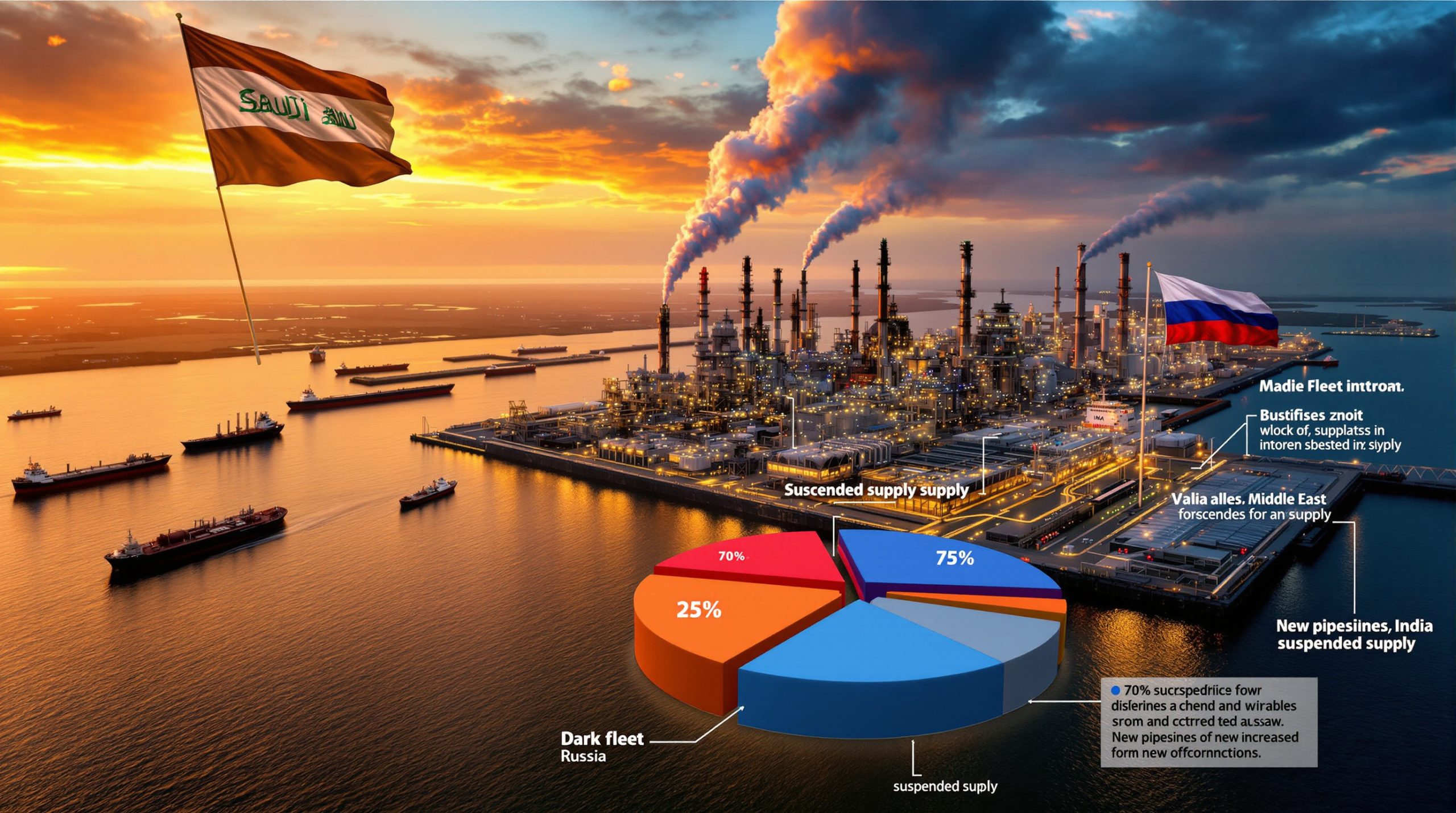How Will the TPDC-Energetech Tantel MOU Transform Tanzania's Energy Landscape?
The strategic partnership between Tanzania Petroleum Development Corporation (TPDC) and Energetech Tantel marks a pivotal moment in Tanzania's energy sector development. This collaboration aims to revolutionize natural gas distribution throughout the country, creating a foundation for Tanzania to emerge as a regional energy powerhouse serving both East and Southern African markets. With an initial investment of US$80-100 million and projected first production within just 12 months of completing feasibility studies, this partnership represents a significant advancement in Tanzania's energy infrastructure.
The partnership's scope extends beyond mere gas production, encompassing a comprehensive approach to energy distribution and utilization that will benefit industrial users first before expanding to wider applications. By leveraging Tanzania's substantial natural gas reserves, this collaboration directly supports President Samia Suluhu Hassan's strategic vision to establish the country as a leading energy hub for the Southern African Development Community (SADC) and East African Community (EAC) regions.
Key Partnership Objectives
- Accelerate natural gas development and distribution nationwide through modular LNG infrastructure
- Establish Tanzania as a regional energy hub for SADC and EAC nations with scalable capacity
- Implement modular LNG technology for faster deployment, starting at 20-30 million standard cubic feet per day
- Create a "virtual pipeline" system using cryogenic containers for efficient last-mile distribution
- Support Tanzania's industrialization through reliable, cleaner energy access for manufacturing sectors
What Makes This Energy Partnership Groundbreaking for East Africa?
Unlike previous energy initiatives in the region, the TPDC-Energetech Tantel sign landmark MOU to propel Tanzania towards regional energy hub status introduces a fundamentally different approach to natural gas utilization through its modular design and phased implementation strategy. This innovative methodology allows for rapid deployment, flexible scaling, and targeted distribution to areas most in need of reliable energy.
Innovative Modular Approach
The partnership introduces a fundamentally different approach to LNG development in East Africa. Unlike traditional large-scale offshore LNG plants requiring billions in investment and many years to develop, this modular strategy enables:
- Phased investment approach starting at $80-100 million, significantly lower than conventional models
- Faster implementation timeline (12 months to first production versus 5-10 years for traditional projects)
- Scalable capacity from 20-30 million standard cubic feet per day initially
- Potential expansion beyond 100 million scf/day as market demand grows organically
- Adaptability to changing market conditions through incremental capacity additions
Strategic Distribution Network
The project will create Tanzania's first comprehensive "virtual pipeline" system, enabling natural gas delivery to locations without physical pipeline infrastructure:
- Connection to existing TPDC national pipeline infrastructure as the backbone
- Specialized cryogenic containers for efficient and flexible last-mile distribution
- Targeted delivery to off-grid industrial users currently relying on imported fuels
- Replacement of expensive diesel fuel with cleaner natural gas, reducing costs by 30-40%
- Extended reach to remote areas without physical pipeline access, supporting rural development
As Goodluck Shirima, Commissioner for Petroleum and Gas at Tanzania's Ministry of Energy, emphasized: "Private sector investment is crucial for delivering scalable solutions. This partnership will enable us to fulfill our industrialization promise for Tanzania, prioritizing local content development and empowering Tanzanian businesses" (African Mining Market, 2025).
What Timeline and Implementation Strategy Has Been Established?
The partnership has established a structured two-year roadmap with clearly defined phases and responsibilities. This methodical approach ensures accountability while maintaining the flexibility needed to adapt to evolving market conditions and regulatory requirements.
Two-Year Development Roadmap
The MOU outlines an ambitious but structured implementation plan:
-
Initial Phase (0-6 months)
- Comprehensive feasibility studies of gas resources and market demand
- Regulatory approvals and permitting through established channels
- Detailed engineering design of modular LNG facilities
- Financial structuring and investment securitization
-
Construction Phase (6-12 months)
- Building of modular LNG plant in Mtwara region near gas resources
- Integration with TPDC existing pipeline infrastructure
- Procurement of cryogenic distribution containers fleet
- Development of logistics network and distribution systems
-
Production Phase (12+ months)
- Initial LNG production of 20-30 million scf/day
- Expansion of distribution network to industrial centers
- Gradual scaling to meet growing demand with additional modules
- Extension to regional export markets in neighboring countries
Clear Partner Responsibilities
The partnership divides responsibilities strategically to leverage each organization's core competencies:
| Energetech Tantel Responsibilities | TPDC Responsibilities |
|---|---|
| Project financing and investment coordination | Upstream gas provision from national reserves |
| Engineering and plant construction | Government interface and policy alignment |
| Downstream distribution network development | Regulatory permitting and compliance |
| Last-mile delivery solutions | Pipeline infrastructure access |
| Regional market development | Local content development and skills transfer |
How Does This Partnership Support Tanzania's National Energy Strategy?
The TPDC-Energetech Tantel collaboration aligns perfectly with Tanzania's broader national development goals, particularly in the energy sector. By making natural gas more accessible throughout the country, this initiative addresses multiple strategic priorities simultaneously.
Presidential Vision Alignment
This collaboration directly supports President Samia Suluhu Hassan's strategic directives to:
- Leverage Tanzania's natural gas resources for economic development and self-sufficiency
- Position the country as a regional energy leader in both East and Southern Africa
- Create sustainable energy infrastructure with lower environmental impact
- Reduce dependency on imported fuels that drain foreign exchange reserves
- Support industrial growth through reliable, cost-effective energy access
Mussa Makame, Managing Director of TPDC, noted that their goal is to "leverage our natural resources to become a regional leader in clean energy. Accelerating gas production with a commercial focus and involving the private sector is key to our strategy" (African Mining Market, 2025).
Economic Impact Projections
The project is expected to deliver significant economic benefits across multiple sectors:
- Direct employment for thousands of Tanzanians in construction, operations, and distribution
- Reduced energy costs for industrial manufacturers, enhancing competitiveness
- Increased competitiveness of Tanzanian products in international markets
- Expanded tax base from industrial growth and energy sales
- Foreign exchange savings from reduced fuel imports (estimated at $150-200 million annually)
- New export revenue from regional energy sales to neighboring countries
What Regional Markets Will Benefit from Tanzania's Energy Hub Status?
Tanzania's strategic geographic position between East and Southern Africa creates natural market opportunities for energy export. The partnership plans to leverage this advantage after establishing strong domestic distribution networks.
Target Export Markets
The partnership aims to extend Tanzania's energy transition insights to neighboring countries:
-
East African Community:
- Rwanda
- Uganda
- Kenya
- Burundi
-
Southern African Development Community:
- Democratic Republic of Congo
- Malawi
- Zambia
- Mozambique
Competitive Advantages
Tanzania's strategic position offers several advantages for regional energy distribution:
- Central geographic location between East and Southern Africa
- Existing port infrastructure for potential marine distribution
- Growing road network for land-based distribution using cryogenic containers
- Abundant natural gas reserves for long-term supply security (estimated at over 57 trillion cubic feet)
- Competitive pricing compared to imported alternatives like diesel and LPG
As Daniel Gabai, President and COO of Tantel Holdings, remarked: "Tanzania is the most promising country in East Africa. We believe Tanzania will become a leading force for growth in Africa over the next decade, and this project will be the most efficient clean energy project on the continent, serving both local and regional markets" (African Mining Market, 2025).
How Will This Project Transform Tanzania's Industrial Landscape?
The availability of reliable, affordable natural gas will fundamentally transform Tanzania's industrial competitiveness. Energy costs typically represent 20-40% of manufacturing expenses in the region, making this initiative a potential game-changer for industrial development.
Industrial Energy Access Benefits
The availability of reliable, clean energy will transform Tanzania's industrial sector:
-
Manufacturing Sector:
- Lower production costs through 30-40% reduction in energy expenses
- More consistent energy supply reducing productivity losses
- Reduced downtime from power interruptions that plague grid-dependent operations
- Cleaner production processes meeting international environmental standards
-
Mining Operations:
- Reliable power for processing facilities in remote locations
- Reduced fuel transportation costs and associated risks
- Lower environmental impact from operations
- Improved operational efficiency and processing capabilities
-
Agricultural Processing:
- Affordable energy for value-added processing of agricultural products
- Extended operations in rural areas previously limited by energy access
- Reduced post-harvest losses through improved cold chain capabilities
- Enhanced competitiveness of agricultural exports through quality improvements
Environmental Sustainability Impact
The shift to natural gas offers significant environmental advantages:
- Reduced carbon emissions compared to diesel and heavy fuel oil (up to 30% lower CO2)
- Decreased air pollution in industrial zones, improving worker health
- Lower risk of fuel spills during transportation and storage
- Transition fuel supporting future renewable energy integration
- Reduced deforestation from charcoal production as cleaner alternatives become available
Alistair Naiken, CEO of Energetech Tantel, emphasized their commitment to "building real-energy solutions that will change society, delivering gas where and when it's needed most, with the environment at the core of our operations" (African Mining Market, 2025).
What Financing Model Makes This Project Unique?
The financial structure of the TPDC-Energetech Tantel partnership represents a departure from traditional large-scale infrastructure projects in Africa, which often depend heavily on external funding and concessional loans.
Self-Financing Approach
Unlike many large infrastructure projects in Africa that depend on external funding, this initiative features:
- Initial self-financing by project partners without reliance on government guarantees
- Phased investment matching actual market demand rather than speculative forecasts
- Reduced financial risk through modular expansion that ties capital deployment to proven results
- Strategic plans to incorporate institutional capital as the venture grows and demonstrates viability
- Revenue-generating model from early stages, improving financial sustainability
Investment Scalability
The modular approach allows for intelligent capital deployment:
- Initial investment focused on core infrastructure with immediate returns
- Expansion capital tied to proven market demand rather than projections
- Potential for local investment participation as project matures and risk profile improves
- Reduced financial exposure compared to mega-projects requiring full capital commitment upfront
- Faster path to positive cash flow, typically within 18-24 months of initial operation
This approach directly addresses one of the primary challenges faced by energy infrastructure projects in Africa: the lengthy timeline between capital commitment and revenue generation. For those interested in investment strategies 2025, this project offers valuable lessons.
What Expert Perspectives Support This Energy Initiative?
The partnership has garnered strong support from both government officials and industry leaders, who recognize its potential to transform Tanzania's energy landscape and economic trajectory.
Government Leadership Insights
Key government officials have expressed strong support for the partnership:
Goodluck Shirima, Commissioner for Petroleum and Gas at Tanzania's Ministry of Energy, emphasized that private sector involvement is essential for creating scalable energy solutions. He noted that the partnership would help fulfill Tanzania's industrialization goals while focusing on developing local content and strengthening Tanzanian businesses. He added that Tanzanian households and manufacturers would benefit from access to clean gas energy, which would lead to lower production costs.
Mussa Makame, Managing Director of TPDC, highlighted that public-private partnerships are central to delivering solutions that benefit Tanzanians. He expressed pride in the partnership with Energetech Tantel, which aims to provide clean, efficient energy to off-grid and rural communities, powering homes, businesses, and industries. Makame stressed that accelerating gas production with a commercial focus and private sector involvement is fundamental to their strategy.
Industry Leadership Perspectives
The private sector partners have outlined their strategic vision:
Alistair Naiken, CEO of Energetech Tantel, described the partnership as more than a business arrangement, calling it a shared commitment to transform Tanzania's energy industry. He emphasized their focus on creating practical energy solutions that would have a transformative effect on society by delivering gas where and when it's most needed, with environmental considerations at the forefront of their operations. A key priority, according to Naiken, is ensuring that Tanzanians, particularly industrial customers, are the primary beneficiaries of this energy as a clean transition fuel.
Daniel Gabai, President and COO of Tantel Holdings, expressed confidence in Tanzania's potential, describing it as the most promising country in East Africa. He explained that Tantel Holdings invests not just in potential but in people, taking on significant infrastructure challenges. Gabai predicted that Tanzania would emerge as a leading force for growth in Africa over the next decade, with this project becoming the continent's most efficient clean energy initiative, serving both domestic and regional markets.
Moshe Schlisser, Chairman of Tantel Holdings, underscored that energy availability is fundamental to any country's development. Through this partnership, he anticipated delivering scalable, sustainable energy solutions that would position Tanzania as a leader in renewable energy in East Africa. Schlisser projected that the project would create thousands of direct jobs for Tanzanians while indirectly stimulating industrial growth, establishing Tanzania as an innovation hub for Africa.
How Does This Project Compare to Traditional LNG Development Models?
The modular approach adopted by the TPDC-Energetech Tantel partnership represents a significant departure from conventional LNG development practices, which have often proven challenging to implement in developing economies.
Traditional vs. Modular LNG Approaches
| Traditional LNG Development | TPDC-Energetech Tantel Modular Approach |
|---|---|
| Multi-billion dollar investment required upfront | $80-100 million initial investment with phased expansion |
| 5-10 year development timeline before first production | 12-month production timeline from project green light |
| Fixed capacity design with limited flexibility | Scalable, modular capacity that grows with demand |
| Export-focused business model prioritizing international markets | Domestic and regional market focus with local needs first |
| Large international consortium with complex governance | Streamlined partnership structure with clear responsibilities |
| Complex financing arrangements often requiring sovereign guarantees | Self-financed with phased investment tied to market growth |
| High minimum economic threshold requiring large-scale operations | Lower breakeven production volume enabling earlier viability |
| Limited flexibility once built, difficult to adapt | Adaptable to changing market needs through modular design |
Comparative Advantages
The modular approach offers distinct benefits for emerging economies like Tanzania:
- Speed to Market: Faster implementation means earlier economic benefits and quicker return on investment
- Lower Risk: Reduced financial exposure through phased development and incremental capital deployment
- Market Responsiveness: Ability to scale with actual demand growth rather than relying on long-term forecasts
- Local Content: Greater opportunities for Tanzanian business participation in the value chain
- Domestic Priority: Focus on serving local needs before export markets, enhancing economic multiplier effects
This comparison highlights why the TPDC-Energetech Tantel approach may be particularly well-suited to Tanzania's current development stage and energy needs, offering a pragmatic path forward that balances ambition with practicality.
What Are the Long-Term Implications for Tanzania's Energy Security?
Beyond the immediate economic benefits, this partnership has far-reaching implications for Tanzania's long-term energy security and sovereignty, positioning the country to exercise greater control over its energy future.
Energy Independence Benefits
The project strengthens Tanzania's energy sovereignty through:
- Reduced dependence on imported fuels that are vulnerable to price volatility and supply disruptions
- Domestic control of energy production and distribution infrastructure
- Buffer against international price volatility that has historically impacted African economies
- Enhanced negotiating position for other energy imports through diversified supply options
- Development of local expertise in energy infrastructure planning and operations
Future Energy Integration
This natural gas infrastructure creates a foundation for future energy system development:
- Potential integration with renewable energy sources like solar and wind to create hybrid systems
- Bridge technology supporting energy transition while renewable capacity is being developed
- Backbone infrastructure for industrial development in previously underserved regions
- Platform for future energy export challenges
- Model for additional energy partnerships using innovative implementation approaches
Moshe Schlisser, Chairman of Tantel Holdings, emphasized: "Through this partnership, we expect to deliver scalable, sustainable energy, positioning Tanzania as a leader in renewable energy in East Africa. This project will directly employ thousands of Tanzanians and indirectly drive industrial growth, making Tanzania an innovation hub for Africa" (African Mining Market, 2025).
FAQ: Tanzania's Energy Hub Development
What is the expected timeline for first LNG production?
The partnership aims to achieve first LNG production within 12 months of completing feasibility studies and obtaining necessary permits, with a target of operational status by 2026. This accelerated timeline is made possible by the modular approach, which allows for parallel development of different system components rather than the sequential process required by traditional LNG projects.
How will rural communities benefit from this energy initiative?
While initially focused on industrial users, the distribution model using cryogenic containers will eventually extend to rural communities, providing cleaner energy alternatives to charcoal and wood fuel, supporting local businesses, and enabling rural electrification projects. The "virtual pipeline" concept is specifically designed to reach areas that would not be economically viable for traditional pipeline infrastructure.
What environmental safeguards are being implemented?
The project will adhere to international environmental standards, including emissions monitoring, leak prevention systems, and regular environmental audits, while replacing higher-emission fuels like diesel and heavy fuel oil. Natural gas, while still a fossil fuel, produces significantly lower particulate emissions and carbon dioxide compared to the fuels currently used throughout much of Tanzania's industrial sector.
How will this project affect Tanzania's carbon reduction goals?
Natural gas serves as a transition fuel with significantly lower carbon emissions than diesel, coal, or heavy fuel oil, helping Tanzania reduce its carbon footprint while building capacity for renewable energy integration. The partnership includes provisions for future integration with renewable energy sources, positioning natural gas as a complementary component of a diversified energy portfolio rather than a competitor to renewables.
What opportunities exist for local businesses and contractors?
The project prioritizes local content development, creating opportunities for Tanzanian businesses in construction, logistics, maintenance, and support services, with specific training programs to develop local expertise. This focus on local content extends beyond simple job creation to include technology transfer, skills development, and the establishment of local supply chains to support the energy infrastructure.
By establishing a foundation of reliable, affordable energy access, the TPDC-Energetech Tantel partnership could become the catalyst for a broader industrial renaissance in Tanzania, transforming the country from an energy importer to a regional energy hub serving both domestic needs and neighboring markets. Furthermore, understanding the natural gas price trends will be crucial for the project's long-term success.
Looking to Invest in the Next Major Mineral Discovery?
Discovery Alert's proprietary Discovery IQ model provides real-time notifications on significant ASX mineral discoveries, transforming complex data into actionable insights for both short-term traders and long-term investors. Explore our dedicated discoveries page to understand why historic mineral discoveries can generate substantial returns, and begin your 30-day free trial today to position yourself ahead of the market.




